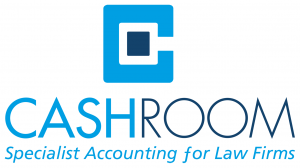Innovations and trends shaping the law firm of tomorrow
The changing client expectations
The shift towards instant access in client expectations reflects the broader societal trend of immediate gratification. We now live in a world, where services like TV streaming and same-day delivery set the standard, consumers now expect the same level of convenience in all aspects of their lives, including legal services. For law firms and business owners, the challenge is to meet these elevated expectations and deliver the quality of service that clients demand. It is important to understand that these expectations are not unique to the legal industry; they reflect larger societal changes. By recognizing this broader context, we can develop strategies to improve the delivery of legal services.
While this brings numerous opportunities for us and our businesses, it also brings with it a set of challenges. Examining the timeline for products to reach 1 million users reveals a notable acceleration over the years. In 1999, Netflix reached this milestone in 3.5 years. In contrast, Chat GBT achieved the same feat within just 5 days of its launch in 2022. Even more impressively, Threads, a competitor to Twitter, attracted 1 million users within an hour of its debut earlier this year. This rapid adoption highlights how consumers are more open to trying new products and quickly change providers if their needs are not met. Threads saw a surge in users, especially following the controversy involving Elon Musk and Twitter. It is likely that many of these 1 million users were former Twitter users looking for an alternative platform. This trend is not only relevant to tech companies but also to businesses and law firms. It is important to recognize that if service quality declines, there are other options available to consumers. Today’s consumers are more willing to explore alternatives than in the past, therefore it is crucial for law firms and businesses to adapt to retain clients and foster loyalty.
timeline for products to reach 1 million users reveals a notable acceleration over the years. In 1999, Netflix reached this milestone in 3.5 years. In contrast, Chat GBT achieved the same feat within just 5 days of its launch in 2022. Even more impressively, Threads, a competitor to Twitter, attracted 1 million users within an hour of its debut earlier this year. This rapid adoption highlights how consumers are more open to trying new products and quickly change providers if their needs are not met. Threads saw a surge in users, especially following the controversy involving Elon Musk and Twitter. It is likely that many of these 1 million users were former Twitter users looking for an alternative platform. This trend is not only relevant to tech companies but also to businesses and law firms. It is important to recognize that if service quality declines, there are other options available to consumers. Today’s consumers are more willing to explore alternatives than in the past, therefore it is crucial for law firms and businesses to adapt to retain clients and foster loyalty.
Remote working and flexibility
Looking back on March 2020, the Covid-19 pandemic led to a rapid shift to remote work for many businesses. Now, we are seeing some employers are urging employees to come back to the office. From those who took part, our poll shows that 65% work solely in the office, 15% are on a hybrid schedule, and 19% have fully flexible work arrangements. This data highlights the lack of a clear standard for work conditions, showing a growing preference for flexibility compared to pre covid stud y which saw less than 6% of workers, working remotely. What we are observing in the market is that employees continue to favour flexible working arrangements. Therefore, it will be crucial for firms to prioritize discussions around working practices in their future strategies to meet the service levels required and keep employee retention high. By fostering these flexible work environments, firms can build strong relationships and create office cultures and programs that attract and retain top talent. It appears that some form of flexible working will remain important to employees, and firms need to strategize on how best to adapt to this trend.
y which saw less than 6% of workers, working remotely. What we are observing in the market is that employees continue to favour flexible working arrangements. Therefore, it will be crucial for firms to prioritize discussions around working practices in their future strategies to meet the service levels required and keep employee retention high. By fostering these flexible work environments, firms can build strong relationships and create office cultures and programs that attract and retain top talent. It appears that some form of flexible working will remain important to employees, and firms need to strategize on how best to adapt to this trend.
Another aspect to consider is the nature of the work arrangements prior to the pandemic. Were they primarily hybrid models, or have they been adjusted in response to recent events? Should we wait for another unexpected event to prompt change, or would it be wiser to plan more proactively? We should not underestimate the value of adaptability.
Alterative feeing arrangements
As more firms explore their feeing arrangements and what is the best way for their firm, we found from a recent survey that value-based pricing is becoming an emerging trend amongst law firms.
Value-based pricing offers law firms an alternative approach to billing by focusing on the perceived value of the services provided to the client, rather than the traditional time-based billing. This method emphasises the outcomes and results delivered, rather than the hours invested. It requires close collaboration between the law firm and the client to align on objectives and desired outcomes. Value-based pricing promotes fairness and transparency in pricing for both the client and the law firm. To effectively implement this approach, law firms must thoroughly understand their clients’ objectives, challenges, and expectations, and maintain clear communication throughout the process.
Encouraging law firms to focus on efficiency, innovation, and process optimisation through technology is a key aspect of value-based pricing. By embracing advanced technology, firms can improve productivity and deliver greater value to clients. As we continue to integrate better technology, it is important to plan strategies that benefit both the firm and the client.
Client centric approach
What this truly signifies is a law firm that prioritises clients shaping their processes and business strategies. It goes beyond offering legal expertise; it entails a genuine commitment and understanding to meet the needs and expectations of clients. This begins with adopting a client-focused culture and involves nurturing expertise from the initial inquiry through to the conclusion of the case and beyond.
Understanding clients’ needs is essential for delivering tailored services; there is no one-size-fits-all approach. This requires active listening, effective communication, and a genuine interest in the client’s situation. Providing regular updates, explaining legal processes in clear and understandable terms, and clarifying billing procedures are crucial aspects of this client-centric approach. Instead of waiting for clients to initiate updates, law firms should proactively assist clients by streamlining these processes.
Technology can play a significant role in facilitating clear communication with clients. Implementing live, real-time tracking can offer clients immediate access to the information they seek, enhancing transparency and trust. Accessibility and responsiveness are also vital considerations. Understanding whether clients require out-of-hours access to services can further help in building a truly client-centric law firm that meets the evolving needs of clients around the clock. Clients now have access to more information online through platforms like Chat GBT, which may lead them to believe they are well-informed. It is essential for law firms to understand and align with their clients’ expectations and establish clear agreed-upon outcomes to ensure effective communication and collaboration.
Post-service feedback is crucial for continuous improvement, including asking for feedback at each stage through reviews and NPS surveys. By identifying what went well and replicating those practices, as well as pinpointing areas for improvement, firms can streamline processes and enhance consistency. Leveraging technology to consistently collect feedback ensures that no opportunities for improvement are missed, facilitating ongoing learning and refinement.
As law firms expand, it becomes increasingly important to strive for daily improvement. With competition intensifying, having a robust and continuous improvement strategy is essential for driving law firms forward.
Key innovations in the legal sector
Artificial Intelligence and machine learning are becoming more common, transforming the way we work. In large law firms, these technologies are already being utilised for legal research, document analysis, and contract reviews. We are also witnessing the emergence of legal chatbots capable of contesting parking fines and addressing other minor legal issues. While AI-driven case production requires substantial data and effort, it offers informed outputs and analytics that would otherwise take humans hours or even days to produce.
document analysis, and contract reviews. We are also witnessing the emergence of legal chatbots capable of contesting parking fines and addressing other minor legal issues. While AI-driven case production requires substantial data and effort, it offers informed outputs and analytics that would otherwise take humans hours or even days to produce.
There is a significant opportunity for legal professionals to familiarise themselves with the available tools and stay abreast of emerging technologies. By becoming early adopters and keeping an eye out for new products relevant to their areas of law, professionals can challenge conventional thinking and explore more efficient ways of performing tasks. Engage with your software provider to ensure you are maximizing the benefits of their platform. Offer feedback on desired improvements and better integration features. Providing constructive feedback is beneficial for both parties.
Adopting new legal tech for document management systems and client identification tools go a long way in enhancing the experience for the client. Clients are increasingly opting for the convenience of sharing documents online on their own schedule rather than providing hard copies in person. Additionally, integrating online payment links within invoices simplifies the payment procedure, improving the client experience, aiding in credit control, and minimizing payment delays.
Tips for future ready law firms
- Promote an innovative culture and actively encourage it among all employees within the firm. Allocate resources for continuous learning and development, ensuring staff have time to familiarize themselves with innovative technologies and processes.
- Cultivate partnerships with legal tech companies to enhance collaboration.
- Maintain agility and adaptability to meet evolving technological and client needs.
- Prioritise cybersecurity and data protection, recognising the significant consequences of any lapses in this area as everything becomes increasingly digital.
By implementing these tips, law firms can stay competitive, improve client experiences, and drive continuous improvement to ensure they are ready for ‘tomorrow.’
Follow us on LinkedIn
To keep up to date with all of the latest news and updates from Cashroom, you can sign up to our monthly newsletter here
Get in touch to arrange a confidential chat with a member of our team.
P: 01695 550950
About Cashroom
 Cashroom provides expert outsourced accounting services for Law Firms including Legal Cashiering, Management Accounts and Payroll services. Our mission is to free lawyers from the complexities of legal accounting by supporting the industry with accurate management information and allowing lawyers to do what they do best – practice law.
Cashroom provides expert outsourced accounting services for Law Firms including Legal Cashiering, Management Accounts and Payroll services. Our mission is to free lawyers from the complexities of legal accounting by supporting the industry with accurate management information and allowing lawyers to do what they do best – practice law.
‘The Cashroom have been an integral part of MBM from their inception. They has supported the growth of MBM from a small firm of 15 people all the way to the 70+ partners and staff now working in the firm. I have first hand experience of the wealth of skill employed within the business and the cashiering knowledge is unrivalled. The fluid ability of Cashroom to adapt to the changing requirements of a firm on a daily basis, as well as the ability to cover holiday periods seamlessly would be a benefit to any law firm. The Cashroom portal provides a first class workflow system for all cashiering requests and, more importantly, provides the level of security that email instructions do not. Cashroom provide both a cost effective fully outsourced service that can deliver almost everything that an internal finance team would be charged with, as well as a wraparound service to support an internal finance team.’



